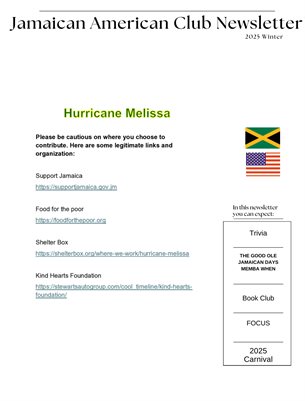
by Winston Walker
Whilst out shopping in my local supermarket, my eye was captivated, by a young black girl being rather unruly, this girl in my opinion could only been aged around 5 or 6, however what struck me even more was that she was addressing the adults who were with her as mother and father, but what was unique was the fact that the people she was addressing as mother and father were also white, I assumed they were her foster or her adoptive parents.
I never really thought much about it, until I spoke to a friend from the city in which I grew up, this friend like myself is black, however he was also adopted by a white family, although he praised the way he was brought up he would often confide to me the problems he would have in adult life in relating to other black people and also believing the stereotypes and labels that are often attributed quite unfairly to many of us.
Although I do not want to undermine the credibility of people being parents, I think I can identify the issues and the backbone to his problems; we need to look at ourselves as black people and the issue of the lack of black people coming forward to be adoptive or foster parents.As stated in the previous paragraph we must not underestimate the credibility of people being responsible parents, however, what I must question is how these children are developing within a modern British Society, however we must start looking at ourselves and how we are failing our own.
All too often is the case is many people who choose to foster or adopt youngsters are often from white middle class suburban Britain, and often is the case, that these communities do not interact with multi-cultural Britain and in the process leaving these children with the lack of identity that is needed.
A question I often ask myself, who prepares these youngsters for the racism that exists within not only the society we live in, but also the world at large?, who will understand these children when they confront issues such as racial abuse or exclusion or often the isolation we feel, in some segments of the society that we live in, who teaches these children of the history of black people? as I am confident that they will not be taught these issues in schools.
I having been born in Jamaica and raised in Britain I never came across a situation in which I was taught about black culture in school or college, or heard of where black culture is a part of the education curriculum in modern British society.
An issue, that caused controversy in our media most recently was pop idol, Madonna, adopting a child from Malawi, however although we have to commend her for the courage in doing this, we must ask certain questions, such as, how many black people does Madonna have coming to her house?, how can she prepare these children for the issues that they will have to face as they develop into adulthood, and as stated in a previous paragraph, how does she explain when these children will come across issues of racial abuse and prejudices that sadly still exist.
Myself can relate to issues of stereotyping and labelling, having being educated in boarding schools, due to difficulties in childhood, although spending time with family of a weekend and holidays, my problems arose when I left school at the tender age of 16, and generally not being able to relate to certain situations not only in the white community, but also in the black community, and was often left with a sense of not belonging anywhere, however I do not criticize the way I was educated, as I have often thought that it has left me culturally diverse, with an understanding of two cultures.
As for black people fostering or adopting white children, I am confident in saying that we are well equipped to do that, and this can be put down to the long history of colonialism that many of us have come from, and as I often say in many debates that I have had, many of us are culturally richer than we care to think, as not only us, people throughout the world will know everything there is too know about Britain, however we often find that native Britain does not understand or in some instances will not want to make the effort too understand the people who live amongst them, however in our own countries we are forced to understand these societies just to survive.
The problem lays with us, whatever reasons our children are being put in these situations, we have a responsibility to our own so that our identity and integrity can be maintained within our culture, we are a caring people, no matter what we have come from, and it is important that we find more people from our background to take on the roles of foster or adoptive parents, we need to start caring about each other and not just our own biological children, but all our children.We also need to be educating our youth on the practice of safe sex and contraception, as we do have a very long history of teenage pregnancies and in some cases creating an unwanted generation, who will find themselves, lacking in identity and culture.
The problems that come from many people coming forward to do these kind of work or deeds, may come from weariness, of being investigated and the procedures that now all people who choose to foster or adopt will have to endure, however I must I have to agree with a lot of these procedures, as anybody who is put in a position where they have to be cared for, must also be protected and we as a society must always protect our vulnerable, however we has people who come a long history of colonialism also have a duty to maintain the integrity and standards that we have maintained within our culture for so long, and that must start with our young people.




1 comment:
herbal viagra reviews cheap viagra canada women's viagra viagra attorney columbus cheapest uk supplier viagra buy viagra without prescription buy cheap viagra online uk buy viagra cheap buy sublingual viagra online generic viagra cheap buy viagra now viagra substitute side effects of viagra viagra over the counter
Post a Comment